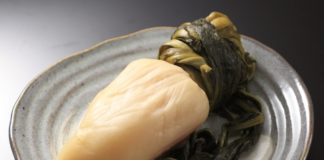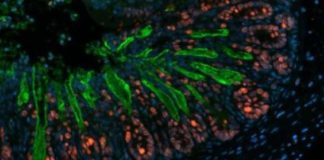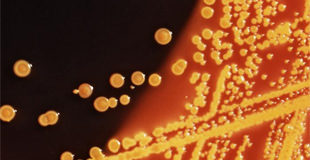Red Meat Linked to Heart Disease: Carnitine and TMAO
A compound abundant in red meat and added as a supplement to popular energy drinks has been found to promote atherosclerosis — or the...
Japanese Pickled Turnip Shown to Prevent Flu Infection in Animal Model
Scientists have discovered that bacteria found in a traditional Japanese pickle can prevent flu. Could this be the next superfood? The research, which assesses the...
A Galaxy Within Us: Programming Gut Microbiota with Food
Who would have thought that the human body contains over 10 times the amount of bacterial cells as human cells? These bacteria — now...
Intestinal Bacteria Linked to Rheumatoid Arthritis
Researchers have linked a species of intestinal bacteria known as Prevotella copri to the onset of rheumatoid arthritis, the first demonstration in humans that the chronic...
Overcoming Antibiotic Resistance with Bacteriophages
A team of scientists from Europe has recently isolated a group of naturally-occurring viruses that specifically target the highly infectious hospital superbug Clostridium difficile (C. diff). Dr Martha Clokie of...
Eat Less — Live Longer
Scientists have shown a link between long-living calorie-restricted mice and the types of microbes residing in the guts of those mice (image above). The...
Gut Microbes for Life
Most strains of gut microbes stay with us for decades, which may prove useful for tracking our health.
By Ed Yong | The Scientist | July 4, 2013
We all...
Fighting Microbes With Microbes
Doctors turn to good microbes to fight disease. Will the same strategy work with crops? Like humans, with their complement of microbes that aid in everything from immune responses to nutrition, plants rely on a vast array of bacteria and fungi for health and defense. Over the last decade, research has revealed many new functional aspects of the crosstalk between human-associated microbes and human cells, but plant biologists are only beginning to scratch the surface of the often surprising ways that soil microbiota impact plants
Synthetic Stool Can Cure C. Difficile Infection, Study Suggests
A synthetic "poop" developed at the University of Guelph can cure nasty gastrointestinal infections caused by Clostridium difficile, a toxin-producing bacterium.




















